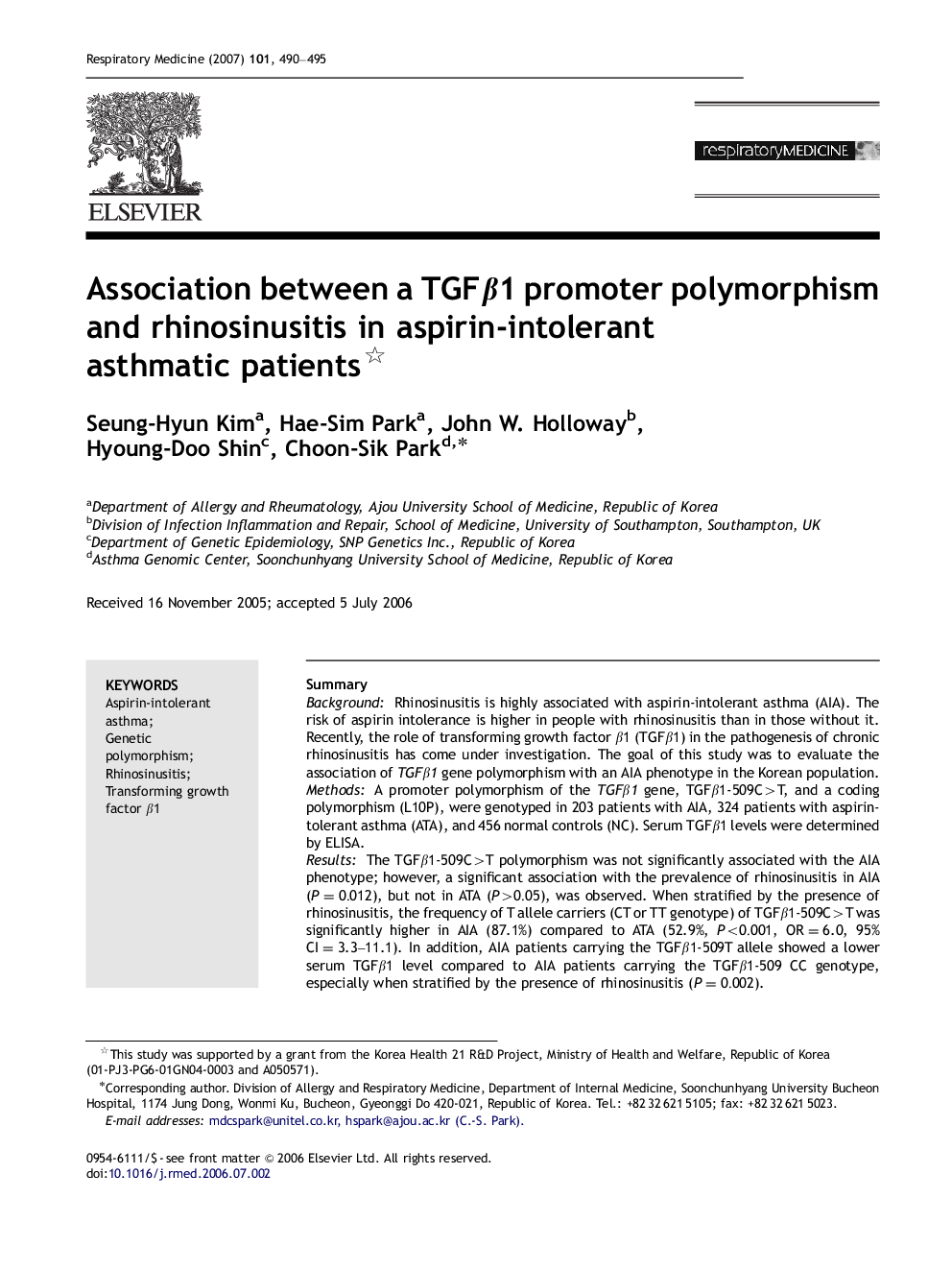| Article ID | Journal | Published Year | Pages | File Type |
|---|---|---|---|---|
| 4211740 | Respiratory Medicine | 2007 | 6 Pages |
SummaryBackgroundRhinosinusitis is highly associated with aspirin-intolerant asthma (AIA). The risk of aspirin intolerance is higher in people with rhinosinusitis than in those without it. Recently, the role of transforming growth factor β1 (TGFβ1) in the pathogenesis of chronic rhinosinusitis has come under investigation. The goal of this study was to evaluate the association of TGFβ1 gene polymorphism with an AIA phenotype in the Korean population.MethodsA promoter polymorphism of the TGFβ1 gene, TGFβ1-509C>T, and a coding polymorphism (L10P), were genotyped in 203 patients with AIA, 324 patients with aspirin-tolerant asthma (ATA), and 456 normal controls (NC). Serum TGFβ1 levels were determined by ELISA.ResultsThe TGFβ 1-509C>T polymorphism was not significantly associated with the AIA phenotype; however, a significant association with the prevalence of rhinosinusitis in AIA (P=0.012P=0.012), but not in ATA (P>0.05P>0.05), was observed. When stratified by the presence of rhinosinusitis, the frequency of T allele carriers (CT or TT genotype) of TGFβ 1-509C>T was significantly higher in AIA (87.1%) compared to ATA (52.9%, P<0.001P<0.001, OR=6.0, 95% CI=3.3–11.1). In addition, AIA patients carrying the TGFβ1-509T allele showed a lower serum TGFβ1 level compared to AIA patients carrying the TGFβ 1-509 CC genotype, especially when stratified by the presence of rhinosinusitis (P=0.002P=0.002).ConclusionOur results show that the TGFβ1 polymorphisms are not associated with the AIA phenotype in the Korean population, but may contribute to the development of the AIA phenotype with rhinosinusitis.
